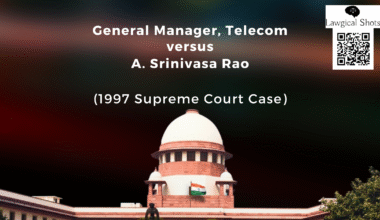India’s courts suffer chronic congestion with over four crore cases pending, creating delays and denying timely justice. At the same time, every sector has embraced digital transformation, and the legal system is rapidly following the suit. The COVID-19 pandemic in particular proved that “justice is now no longer associated with a place, i.e., courts, but rather a service” delivered remotely. In this context, Online Dispute Resolution (ODR), which utilizes electronic communications and digital tools to resolve conflicts, is emerging as a technology-enabled, scalable, and inclusive way forward. As one expert notes, the “ODR process is already an emerging method of dispute resolution in India, a cheap, neutral, quick fix for small-scale disputes”. In short, ODR promises to turn “justice for all” into a reality in a Digital Bharat.
Understanding ODR and Its Rising Importance
ODR can be viewed as ADR (mediation, arbitration, negotiation) conducted online. In practice, parties exchange documents and arguments via video conferences, emails, or dedicated platforms, rather than physical courts. For example, global e-commerce companies like Amazon and eBay already use ODR for buyer–seller disputes. In India, fintech and consumer grievance portals (like RBI’s ODR for digital payments and the MSME SAMADHAAN portal) also lean on online mechanisms.
Several recent trends have given ODR new urgency. The global shift toward online commerce and digital finance means more cross-border and tech-related conflicts that demand swift resolution. The COVID-19 lockdowns forced courts and tribunals into virtual hearings, demonstrating that justice can be delivered without courtroom appearances. Even India’s highest courts have openly embraced technology – for instance, the Delhi High Court piloted an online mediation project. Government agencies and rule-makers have noticed: NITI Aayog’s recent ODR policy report and expert committees emphasize legal reforms, infrastructure, and culture-building to mainstream ODR. In sum, a confluence of digital growth, pandemic experience, and evolving user expectations has made ODR not just possible but compelling now.
Why ODR Is the Future of Indian Dispute Resolution
ODR offers clear advantages that align with India’s needs and its Digital India vision. Key benefits include:
- Scalability and Speed: Online platforms can handle surges of cases far beyond the capacity of any single court. Simple procedural rules and asynchronous (not real-time) communication mean most disputes can be closed in days or weeks, not years. This agility is critical given the huge backlog in our courts. A recent study notes ODR’s “convenient nature broadens the possibilities of remote resolution” and argues “the time to mainstream it in India, is now”.
- Cost-effectiveness and Inclusion: ODR generally costs far less than litigation. Parties save on travel, venue, and procedural expenses, making justice more affordable for individuals and small businesses. Lower costs especially benefit under-resourced litigants, for example, start-ups and MSMEs (a focus of current government policy) that previously found legal fees prohibitive. Moreover, remote resolution can extend access to rural and underserved populations. In theory, a farmer in a village or a worker in a small town can resolve a contract or consumer dispute without coming to a city court, provided there is internet access.
- Alignment with Digital India: ODR is a natural fit with India’s ongoing digitalisation. Our judiciary itself has noted that technology has turned justice into a service delivered at the parties’ convenience. By embedding dispute resolution into the online ecosystem (e-commerce platforms, grievance portals, apps), ODR extends Digital India’s promise of citizen-centric governance. As one commentator puts it, “Online Dispute Settlement (ODR) is set to revolutionize the conventional dispute settlement framework in India while offering a more affordable and easily accessible legal system.”. In the long run, mainstreaming ODR helps turn legal redress into an on-demand utility for a “smart nation.”
Importantly, several Indian initiatives already illustrate ODR’s future role. Government-backed efforts include the National Internet Exchange of India’s online domain dispute system and the RBI’s two-tiered ODR for digital payments complaints. The Supreme Court’s e-committee and NITI Aayog are actively planning institutional support. Together, these efforts demonstrate that technology-enabled platforms – public or private – can quickly help “decongest courts” and serve India’s diverse litigants.
Legal Backing & Policy Evolution
Existing statutes and case law are remarkably accommodating to ODR, even if no dedicated “ODR Act” exists. India’s law indirectly ratifies online resolution: e.g., Section 89 of the Civil Procedure Code (CPC) and Order X, Rule 1A enable courts to refer cases to any ADR process, a provision sufficiently large to cover ODR. The Arbitration & Conciliation Act (as amended in 2015) also offers wide party autonomy regarding procedure and place. Importantly, electronic communication and evidence are acceptable: the IT Act 2000 (with the Evidence Act) specifically acknowledges digital records. In Praful B. Desai (2003) the Supreme Court upheld video-recorded testimony, and in Grid Corporation of Orissa v. AES Corp. it observed that parties need not be co-located if “effective consultation” is possible electronically. Courts have even treated awards exchanged by email as valid. Together, these precedents confirm that remote hearings, electronic filings, and online settlements lie well within Indian law.
On the policy front, India has taken some explicit steps toward an ODR-friendly environment. The Law Commission and NITI Aayog have recommended amendments to incorporate ODR into the Arbitration Act and CPC. The government launched the SAMADHAAN portal (MSME payments disputes) and proposed an ODR rulebook for RBI grievances. India has also acceded to the 2018 UN Mediation Convention, which, while not specific to ODR, signals international alignment with e-mediation standards. High courts and tribunals are building online ADR centers (e.g., Delhi’s Samadhan e-mediation project). All of this shows growing institutional support.
Gaps remain: no stand-alone ODR law or accreditation system yet exists. This means practitioners and platforms operate in a “permitted but unregulated” space. Experts point out that establishing user trust mandates explicit legal legitimacy, say by enacting transparent norms for online mediation/arbitration and making ethical standards for ODR providers obligatory. In short, although Section 89, the IT Act, and recent judgments provide a robust foundation, India still awaits coordinated legislation and guidelines to fully mainstream ODR.
Challenges & The Way Ahead
Despite its potential, ODR uptake is impeded by real issues. Infrastructure and online literacy are patchy: rural areas and poorer communities have no high-speed internet, or smartphones or PCs. For instance, fewer than one in three rural dwellers are online, and millions of villages do not yet have a dependable mobile network. Without investment in broadband and training, these gaps will limit who can use ODR.
Trust, privacy, and enforcement are further issues. Users worry about data security and confidentiality in online settings. Guaranteeing neutral, explicable results is especially important where automated or algorithmic means are used. Additionally, as opposed to the judgments of courts, in some online mediation settlements, their enforceability is legally uncertain. Litigants must have assurance that an ODR decision will be binding or subject to review. To overcome these barriers, the recommended strategy is: Key steps include
- Enlarge digital infrastructure and literacy: Industry and government need to deploy affordable devices and internet in underprivileged areas quickly. Initiatives such as PM’s Gramin Digital Saksharta Abhiyan can be enhanced to incorporate foundational legal-tech trainingWithout access and know-how, ODR remains out of reach for many, defeating its inclusion goals.
- Build ODR capacity: We need more trained mediators and arbitrators comfortable with online tools. Judicial and ADR institutions should invest in training centers for e-mediation/arbitration, and expand court-annexed online ADR centers (building on Delhi, Bangalore pilots). Even para-legal volunteers can play a role by educating rural parties about ODR processes.
- Develop clear regulations: A dedicated ODR policy or law is vital. Policymakers should consider amending the Arbitration Act and CPC (as NITI suggests) to expressly cover ODR procedures. Formal guidelines or an accreditation regime for online platforms will also help ensure quality and fairness. In some jurisdictions, mandating ODR for low-value civil or commercial claims before court recourse has greatly increased uptake; similar “pre-court ODR” mandates could be phased in here.
- Raise awareness and trust: Extensive public campaigns are needed to demystify ODR. Courts, bar associations, and government can jointly highlight success stories and clarify how user data is protected. For instance, integrating blockchain or encryption technologies (as some propose) could be publicized as a trust-enhancer. Over time, as more citizens experience ODR’s convenience and fairness, the cultural acceptance of online justice will grow.
By addressing these issues of digital inclusion, regulation, capacity, and awareness India can truly make ODR a default option for suitable disputes. Many commentators envision a future where most minor civil and consumer cases start online, reserving courts only for the most complex matters.
Conclusion
ODR is no fad but an inevitable evolution of India’s justice system in the digital age. Technology can finally turn our “justice delayed” into justice delivered quickly, cheaply, and inclusively. As one analysis concludes, ODR fits “perfectly within the Indian legal structure” and offers a “cheap, neutral, quick fix” for today’s disputes. With continued judicial support and thoughtful policy, online dispute platforms can expand access to justice in line with India’s Digital India vision. In short, ODR isn’t just online justice it’s smart justice for a smart nation.
This is a GUEST POST by Mr. Sumit Saini, 3rd year law student at Dr. Bhim Rao Ambedkar National Law University, Sonipat.








